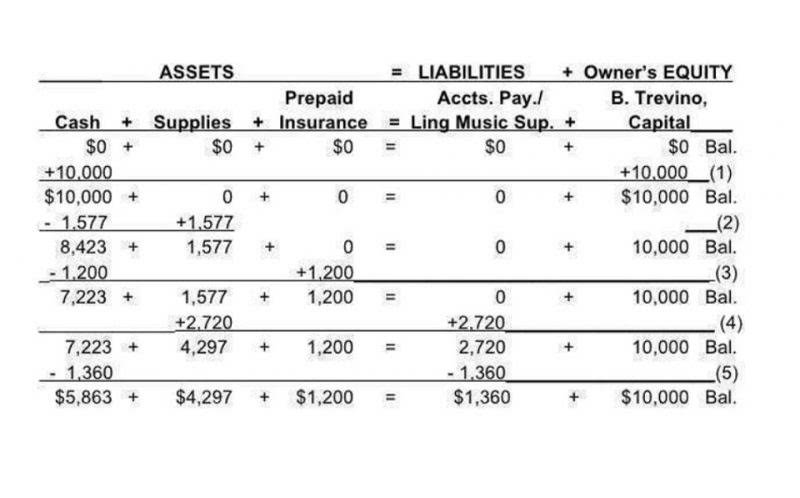
When it comes to the type of payments clients prefer, credit card was the most favored option, accounting for almost half of all respondents across all age groups. In a world where most people are more pressed than ever for time, making the trip to the post office or law firm can feel unnecessary. It may sound obvious, but the first step to reducing this friction is to make it easier for clients to pay their bills. Clients have grown accustomed to the convenience of digital payments in virtually every aspect of their lives, whether they’re making a big-ticket purchase or simply stocking up on groceries. They’ve now come to expect this same level of flexibility when paying for legal services. Generally for law firms, when they send out an invoice, they usually wait until the payment due date expires before contacting the client.
You Manage Your Business.
Regular review and adjustment of these strategies ensure continuous improvement in accounts receivable management, ultimately contributing to the firm’s financial stability and growth potential. Despite this significance, many law firms face challenges when it comes to accounts receivable collection. Some of the main barriers include clients’ reluctance to pay bills and time or technological limitations that prevent lawyers from following-up on outstanding payments. By tackling these challenges, firms can open the door to new levels of success. Law firms work hard to provide top-notch legal services, but getting paid on time can sometimes take just as much effort. Late payments and overdue invoices can cause massive disruptions to a company’s cash flow.
What is a law firm accounts receivable process?

Law firm accounting is a complex system that’s responsible for countless non-billable hours for many legal professionals. In fact, our 2024 Legal Industry Report revealed more than 1 in 10 lawyers and legal professionals cite law firm accounting as the most challenging function their firm faces. Days Sales Outstanding (DSO) is another valuable KPI that measures the time it takes for a company to collect payment after a sale is made.
Consider Accepting Credit Cards
When invoices become severely late, having a standardized process for collections follow-up is essential. Collections workflow software centralizes all late accounts and structures follow-up activities to recover owed funds. The software tracks all outstanding invoices and can provide real-time insight into aging buckets.
- These effective law firm accounts receivable strategies can transform your financial landscape.
- Our comprehensive services are designed to be fully integrated with your practice, ensuring accurate invoicing, responses to appeals, and soft collections.
- Businesses grant credit terms to customers, who then have a specific period to pay the amount due.
- We first get to know your firm, understand your practice, your culture and the causes of the difficulties you are experiencing.
- Law firms find outsourcing to be a cost effective accounting solution that provides a quick win when needing to cut costs, gain access to expertise, focus on core competencies and mitigate risk.
Accounts Receivable Turnover
Tasks such as responding to customer queries, addressing unpaid invoices, and aligning financial statements with outstanding invoices demand significant time. As a business grows, the absence of an efficient cash flow system becomes a bottleneck, hindering further expansion. In the balance sheet, « trade payables, » another word for accounts payable, are listed under current liabilities. When a company sells a product or service on credit, it records the corresponding amount as accounts receivable on its balance sheet. However, until the payment is received, it remains classified as a receivable and does not become cash on hand.

TimeSolv allows law firms to do this to help them achieve zero ARs and get paid instantly. The software securely stores key client information that gets readily added law firm accounts receivable management to automated invoices for a quicker billing process. With just one click, you can send hundreds of invoices and receive payment directly on the same platform. Once you understand the basics, consider hiring an accountant, either as a contractor or as an employee. They can help level up your firm and make the legal accounting process even smoother by adding legal accounting and legal practice management software to your firm’s toolkit.

Best Law Firm Accounting Software for 2025
This metric helps evaluate the effectiveness of credit and collection policies, as well as customer payment habits. A lower DSO indicates a faster collection of receivables, while a higher DSO may imply potential cash flow problems. With clear policies, easy real estate cash flow payment options, incentives, and talent like Legal Buddies, you can enhance accounts receivable management.
We help law firms automate invoicing, billing, and payment collection with features like TimeSolvPay and our in-app client portal that offer convenience and transparency. assets = liabilities + equity ARs can also occur when your firm’s payment schedules are structured based on case milestones and certain cases end up stretching over months or even years. By incorporating accounts receivable collection best practices into your standard client management process, your firm can maintain better control over its financial health. When it comes to accounting for law firms, there’s no one “right” method (though you may be required to take on the accrual method). Some software platforms allow you to use accrual-based books for monthly management of the firm while also creating cash-basis statements for preparing tax returns. Look into the pros and cons of both methods for your firm, then be consistent going forward to ensure your records are accurate and easy to track.
Firm Type

With over 30 years of experience, these legal accounting tools help law firms reduce administrative burdens, automate repetitive tasks, and meet compliance requirements. PCLaw and Time Matters provide intuitive features, secure data management, and mobile access, ensuring law firms can manage cases and operations seamlessly, whether in the office or remotely. Spending valuable work hours on manual law firm accounts receivables processes is far from cost-effective. Through automation, these time-consuming processes are streamlined, leaving you and your staff with more time to focus on paying clients. Receivables automation increases your efficiency and productivity, and takes away any extra costs such as printing that may go into manual accounts receivable methods.
Laisser un commentaire